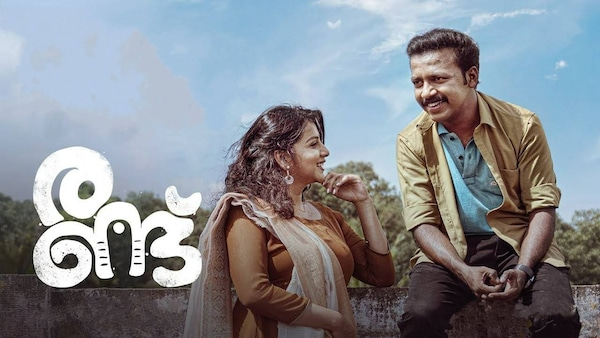Randu movie review: Vishnu Unnikrishnan's slow-burner satire takes searing look at divisive religious politics
Credit must be given to the scriptwriter to connect Vava's personal troubles and his moment of desperation that led to the incident in the mosque. But the movie doesn't quite build on the momentum of the intermission sequence.

Last Updated: 06.11 AM, Feb 03, 2022
Story: Autorickshaw driver Vava is everybody's go-to guy in his village - be it leading a sports team full of members of another religion or playing peacekeeper when those within his community try to find reasons to incite division among people. The village is already brewing with tension, despite the facade of its religious leaders of unity. But when Vava inadvertently finds himself in a situation where he can't explain the truth and his explanation hardly convinces those who are bent on seeing those from the other religion as enemies, he becomes a pawn for both parties. The impact of divisive religious politics has on Vava and those around him form the rest of the plot.
Review: With Vishnu Unnikrishnan's Randu, in a gap of three months, Mollywood has got its third movie, which takes on divisive communal politics and is brave enough to show what's being done by religious parties to forward their agenda. The setting of Randu is a village, where people of all religions live in harmony, or at least that's what the film's protagonist Vava believes. But how could what's happening in the rest of the country not affect this village, especially when there is friction between two communities?
In one of the scenes, we see a member of a right-wing party rooting for India to beat Pakistan in a squash match, even though he has no idea about the sport. After India loses, he takes out his anger on a Muslim man and his bike, only because he assumes the latter was smiling due to India's defeat. A few decades ago, it would have been easy to brush off the scene as being too dramatic but considering the current socio-political scenario, stranger things have happened or were made to happen because of the whims and fancies of leaders pushing their divisive politics. And it's these leaders who twist the truth - as director Sujith Lal shows in a searing scene when Vava tells what really transpired in a public platform, only for a senior party member to flesh out the venom behind the words where there was none.
The second half of the movie has many of these sequences where the director is gutsy enough to show to the audience the tactics and impact of religious leaders through the movie. However, the overall arc is disjointed and melodramatic. Even at just above two hours duration, the movie doesn't quite hold your interest. Vishnu does a decent job with his character but doesn't quite stand out. It's the same for all the other characters. Tini Tom would probably be the only exception as the leader of the right-wing party who isn't afraid to threaten.
However, credit must also be given to the scriptwriter to connect Vava's personal troubles and his moment of desperation that led to the incident in the mosque. But the movie doesn't quite build on the momentum of the intermission sequence.
The film's cinematography and music are strictly average. But director Sujith Lal's voice surely comes through in Randu.
Verdict: True to its title, the film's director shows the two different sides of communal politics that aims to divide people who are united. While the core message is ably delivered, it comes at the cost of the entertainment quotient of the political satire that only has few memorable moments.
Subscribe to our newsletter for top content, delivered fast.

